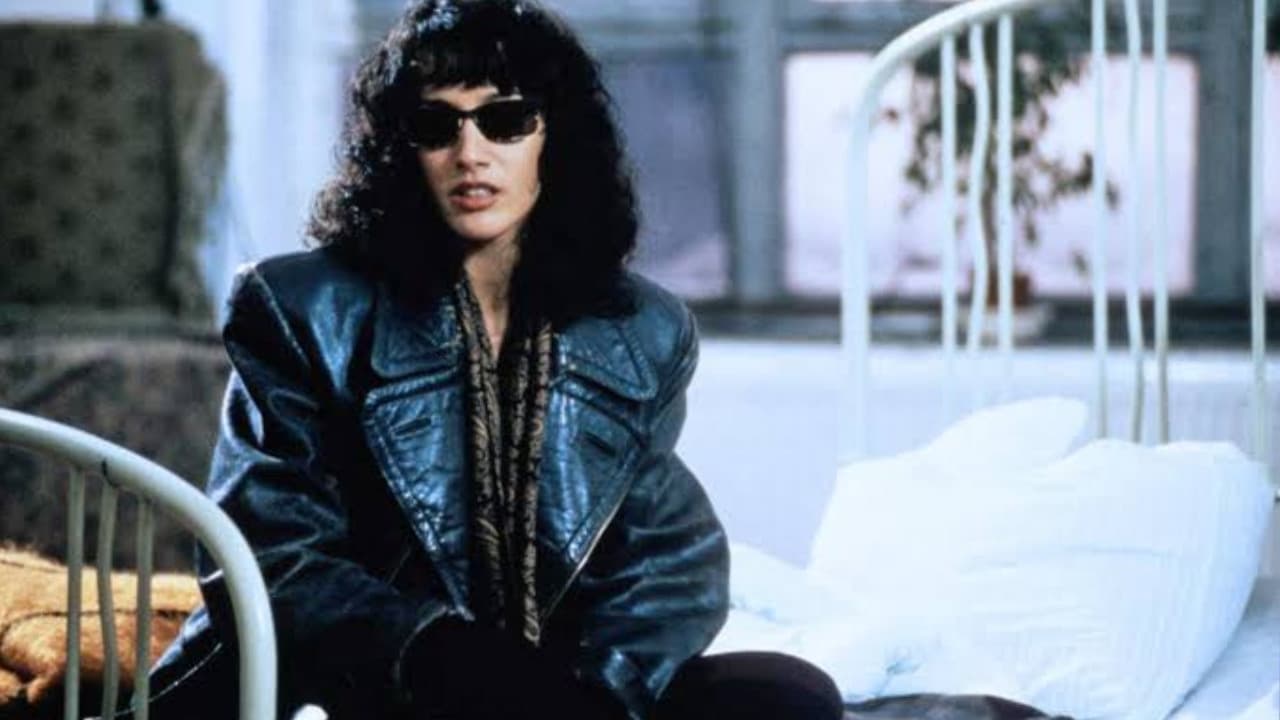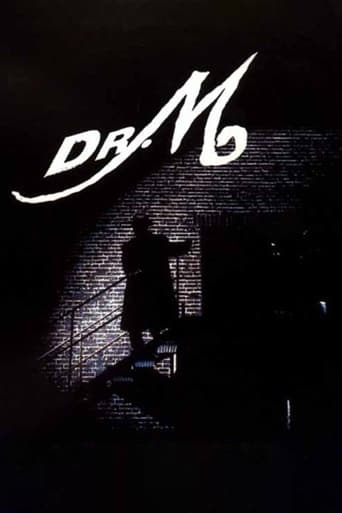



Very well executed
It's fun, it's light, [but] it has a hard time when its tries to get heavy.
View MoreWhile it is a pity that the story wasn't told with more visual finesse, this is trivial compared to our real-world problems. It takes a good movie to put that into perspective.
View MoreGreat movie. Not sure what people expected but I found it highly entertaining.
View MoreTo begin with, I vividly recall reading the mixed newspaper review of this one when it was surprisingly released locally; needless to say, I missed it at the time and, until earlier this year, never again did I have the opportunity to check it out. In fact, it turned up – alas, dubbed – on late-night Italian TV and, though I did record it, I recently opted to acquire the English-language version which is just as well, since two deleted scenes were included in the package! Anyway, knowing the flak the film has received (which was practically universal), I really did not know what to expect from it. However, I must say that I liked it quite a bit, while acknowledging it cannot hold a candle to any of Fritz Lang's movies revolving around the influential figure of criminal mastermind Dr. Mabuse (here, the name has even been changed to Marsfeldt!). Incidentally, the actor most identified with the role (in a revival series of 1960s low-budget efforts) i.e. Wolfgang Preiss appears here as the Chief Of Police!Perhaps the film does at times feel like one of the many German TV cop shows which have flooded the market from the 1970s and still continue to this day, but there is no denying the grip of the narrative (which tried, but unfortunately failed, to be prophetic when the Berlin Wall got torn down only months before the picture debuted!). Equally striking is the imagery pertaining to mass suicide (the most disturbing being a child waiter in full view of the patrons at a swank and busy restaurant), media manipulation and wasted disco-crazy youth (appropriately bleak though, I concede, not all that original).The intense performances are also a plus: particularly Alan Bates as the outwardly charming but obviously sinister Dr. M and Jan Niklas as the disenchanted yet dogged cop on his trail of terror, though heroine Jennifer Beals proves no mere purveyor of eye candy either. Indeed, Bates' occasional resort to hamminess (especially when he passes himself off as a psychedelic guru at a desert holiday resort and spouting his nihilistic credo to an incredulous, disgusted Beals and Niklas during the climax – set in the Doctor's obligatory 'control room' – all the while connected to a life-support system!) are perfectly in keeping with the fanciful goings-on. The eclectic cast also includes the likes of Euro-Cult regular William Berger, future Italian TV presenter Daniela Poggi and former "Brat Pack"-er Andrew McCarthy in small roles.In the end, while it may fall short of Chabrol's best work, the film nonetheless makes for a thought-provoking, stylized and yet entertaining parable on our less-than-reassuring times (incidentally, its suggestion/fear of the millennium as the 'end of days' is pretty amusing at this juncture).
View MoreA Frenchman directing mostly Germans speaking awkward phonetic English--that's just one of the problems here, but it's a big one, since so many of the actors here stiltedly handle dialogue that would be problematic under ideal circumstances. The only person here who seems to have a firm grip on what he's doing is Alan Bates, who chooses to play his media-mogul villain role for arch comedy. As a result, he seems to be in a different movie, so at least this one doesn't embarrass him like the luckless other performers. Jennifer Beals has the right droning, narcotic quality in scenes where she's the hypnotic face/voice of sinister advertisements, but elsewhere she has to rely on her acting abilities, which are limited as usual. Jan Niklas has apparently been excellent elsewhere, but he's dreadful here as the noirishly cynical investigating hero. Andrew McCarthy has exactly one brief scene as an assassin--he does get special billing, but it's neither a cameo or supporting role, just a straight-up bit part (I hope he fired his agent after this).Many people have said this film doesn't make much sense. and I'll have to take their word for it--it's so turgid I might well have not paying attention if/when there were elements that did somehow explain things. There's an inexplicable suicide epidemic in a faintly futuristic Berlin. Like Francois Truffault before him (in "Fahrenheit 451"), Chabrol has no particular feel for sci-fi or dystopian fantasy, despite OK production design. He doesn't even try to build suspense around the possibility of sudden violent death at any moment, and the deaths when they occur are indifferently staged.) There are ridiculous scenes in a quasi-fascist quasi-punk club where everyone dresses in designer black; they dance like performance artists trying cluelessly to imitate a mosh pit. There's also one of those hysterically pretentious sex scenes in which naked gyrations (Beals no doubt using a body double) are intercut with archival footage of nuclear explosions, war crimes, etc. Oh, the humanity. Things get even sillier when the protagonists go to a bizarre "resort"--hence the retitling "Club Extinction"--that's like Club Med meets Jonestown meets "The Prisoner."Unfortunately, the whole film is so misconceived and lifeless there's little camp entertainment value to its mess. One among "Dr. M's" many misfortunes is that it was filmed in 1989, and the script makes much of tensions between Wall-separated East and West--but of course that division had collapsed by the time it came out.
View MoreI quite liked this movie, and intend to watch it a few more times in order to peel off a few more of the layers of meaning Chabrol has woven together. I think most people would find the movie incomprehensible if they didn't know that this is a quasi-remake of Fritz Lang's 1922 masterpiece, "Dr. Mabuse, The Gambler". The "Dr. M" of the title is Chabrol's way of indicating that we are once again in the presence of the bad doctor - not just *a* villain, but THE villain, the ultimate bad guy, genius and madman. Marsfeldt/Mabuse is a pure nihilist in this outing; he's not trying to conquer the world, but to destroy it. His total contempt for humanity drives him to eradicate life wherever he can; he doesn't even bother with Hitler's excuse that he's clearing away the deadwood to make way for a master race. Marsfeldt wants nothing but death and destruction for their own sake. As usual, the plans of the criminal mastermind are disrupted by emotion - in this case, Marsfeldt's weakness for his adopted daughter, Sonja, which prevents him from eliminating her when she becomes a danger to his plans. Alan Bates plays the avuncular father-figure with a compelling creepiness; on the surface he's kind and concerned, but you can't help noticing that every time he touches her, his fingers seem to sink into her flesh like claws, and he kisses her with far too much intensity, leading Sonja to slightly shrink away every time he approaches her. His performance is the best, but Benoît Régent is also good as the high-strung Stieglitz, trapped in a job that's killing his soul, yet unable to disappoint his friend and partner Hartman by leaving. In the end, everyone is guilty to some extent, and only by acting and refusing to yield to despair are Sonja and Claus able to thwart Marsfeldt's plan.
View MoreAnyone who saw more then a few Chabrol's movies knows the pattern: a crime story where a crime is either a consequence of human (mostly family) relations, and it happens in second part of the movie, or it happens on the beginning, and during the movie we watch the consequences crime left on characters' lives. From time to time, however, Chabrol jumped out from the string. In 1990. two different movies followed one another, 'Quiet Days In Clichy' and 'Dr M'. While there is a lack of murders in first one, he compensated it well in the second. In fact, number of killed people in 'Dr M' may be equal to deaths in all other Chabrol's movies together. This time we don't watch a troubled family or a silent psychopath but an organized crime group trying to make Berlin a ghost town, by killing its inhabitants, washing their brains or making them leave in panic. If we found a good motive it might sound good, but there isn't any worth believing in. Deadly ill man showing his power, or an irrational anger because the others are still alive and healthy? If Berlin somehow caused his illness, we could understand his revenge, if he had any financial interests, we could easily believe he is capable of doing crimes (maybe even for his family when he dies, what could make us feel some sympathy). But it's not only the motive. Who is he at all, and how does his organization work? (People who are in network or tourism business usually don't kill thousands of people who watch their programs or travel with them.) Was he a big criminal before he became ill? Why do the others still follow his orders? And why, if killing so many others, he hesitates to get rid of the few who can jeopardize his plan? Etc.Another trouble, making this movie the worst Chabrol film I've ever seen. The movie takes the worst from American action movies and old 60's European art movies. Action with no depth and boredom with no excuse. The characters are uninteresting (even in extreme US action movies you can find a few more real persons), and the actors don't add anything. Maybe Chabrol did it on purpose, putting gray faceless persons in gray faceless town. But this is still not a reason to have them slaughtered. After seeing this picture of Berlin, I can suggest a short two-steps brain washing (basic) program:1. Watch Wenders' "Himmel über Berlin".2. Go to 1.
View More